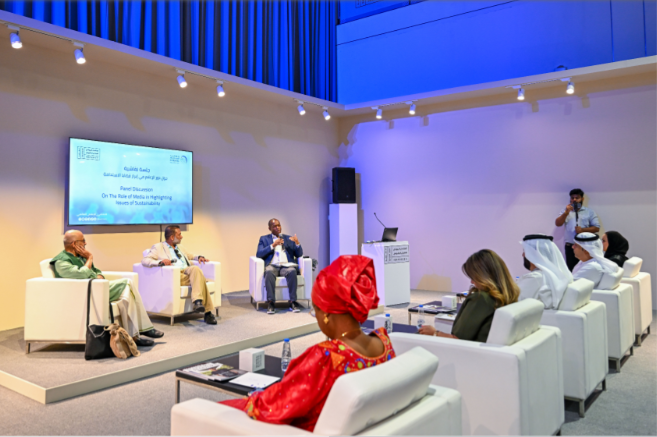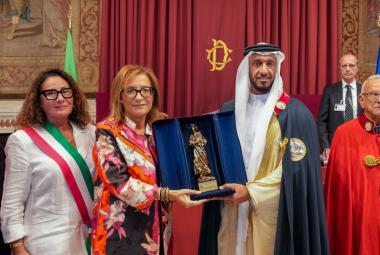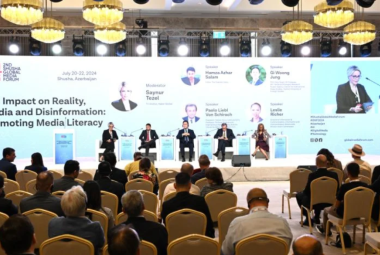Emirates News Agency (WAM), in partnership with Sharjah Government Media Bureau
organized the first World Media Seminar as part of the pre-events of the 12 th International
Government Communication Forum (IGCF 2023).
The seminar, which was held at the Expo Centre in Sharjah, explored the role of the media in
highlighting sustainability issues, brought together selected group of officials, experts,
specialists and partners of WAM from in and out of the UAE.
Addressing the seminar’s inaugural session, Mohammed Jalal Al Rayssi, Director General of
WAM, emphasized the importance of strategic partnerships between media organizations,
especially local media offices. Such partnerships, he said, enhance the quality of news and
media work at local, regional and international levels.
Al Rayssi noted that the launch of the World Media Seminar highlighted key issues that matter
to societies, individuals and institutions.
‘‘The seminar embodies the UAE’s cultural and humanitarian message of spreading knowledge
and expertise and benefiting from global experiences and best practices,” he added.
In her presentation, the Director General of Gambia News Agency (GAMNA), Mrs. Isatou Davies
Ann talked extensively about the evolution of mass media coverage of environmental topics
and climate change.
Highlighting the difference in the way environmental issues were reported in the past and how
they are reported now, she explained that tools such as newspapers, television, radio,
documentaries and photo journalism were used for reporting. However, she indicated that
with the emergence of digital technology, environmental reporting has been revolutionized.
“Although traditional media is still used, digital reporting such as websites, blogs, and social
media platforms, interactive visualization tools for data analysis as well as online data base and
access to scientific research plays a key role and it has resulted in an increase in knowledge and
understanding of environmental issues due to wider media coverage”.
Mrs. Ann further explained that The Gambia has a high illiteracy rate; hence different varieties
of media are used to reach a wider audience. These media, she said include columns on
environment and climate change, collaborating with relevant institutions for sharing of climate
information, collaborating with religious authorities and encouraging them to talk about
environment issues.
Highlighting the ethical challenges in environmental reporting over the years, Mrs. Ann said
they can be addressed by advocating for access to information and data from governments and
corporations, as well as encouraging the establishment of strict regulations and guidelines for
environmental reporting.






